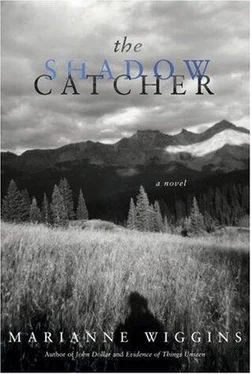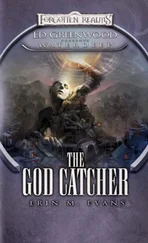
Physically beautiful.
As much as my father yearned toward landscape, looked at it with yearning in his eyes, he never put himself into it, engaged with it physically, until the very end — which made the circumstances of his death all that more shocking. You wouldn’t have thought he had the strength, the sheer ability to do what he finally did. But when I think of Curtis on the land, Curtis in the landscape, I can believe that he could tackle anything, that he had, from the very early years, a natural physical agility, a natural balance in the world.
Like the stereotypical male Indian .
Like Huck Finn.
I can imagine him saying to himself, as Huck does, “Well I reckon I got to light out for the territory ahead of the rest because Aunt Sally she’s going to adopt me and civilize me and I can’t stand it. I been there before.”
Curtis lit out in a big way — so did my father — though it’s impossible to know for sure if they were running from or running to .
That’s the potency of lighting out, of journeying: the from and to are both in play.
Until you stop. Until you stop , the journey is the only rationale.
Huck never says where or what he’s bound for, he just needs to go . Make tracks. Get outta Dodge. Hit the highway. Avoid, elude, escape Aunt Sally . We all have our own Aunt Sally — call her loveless marriage. Call her thankless job. Call her parenthood. Domestic mess. Daily reminder of debt and obligation.
Tedium.
Routine.
The great promise here is that if we load the TV in the truck and move just three states over we can start anew.
Tie the cash cow to the Conestoga and set out across the Plains and Rockies.
Sell mama’s stuff and drive all night to Vegas.

Try to count the miles some Americans rack up on a single family tree, I dare you. Not every family lights out as spectacularly as Curtis’s — or my own Greek grandparents all the way from the Aegean to Virginia — but most families have at least one member who takes off. Throws in the towel and swears take that , Aunt Sal. Laissez-faire and laissez-passer constitute the air we breathe. It’s in the Constitution, the pursuit of. Hell, it’s written. It’s our right. Hell yes , drive all night to Vegas. Hell yes , join the circus. And in the nineteenth century they were giving land away, out here. The railroads were. Homesteading Acts arose in every western state connected by a railroad to the East, so in 1887 Johnson Curtis bit the apple, got the travel bug again and convinced himself that all he needed to restore his health was the purer climate of a Pacific kind. He boarded a Northern Pacific train in Minneapolis with Edward and headed out for Portland, Oregon, then north to Puget Sound, where he purchased land for $3.00 an acre on which he had been told palm trees swayed all the way from Mt. Rainier to the Pacific Ocean. Edward was then nineteen years old and had been serving as his father’s shadow body, his ailing father’s body double, since he was old enough to wield an axe, chop wood, say grace and talk to people. He had never had a childhood in the modern sense — rural children in the nineteenth century worked as soon as they could walk — so by the time he came west by train in the summer of that year, Edward had his own array of resident Aunt Sallys. Filial obligation. Family duty. His own self-imposed yardstick measure of his manhood. He was a man, already, at nineteen; but if any place can redefine a person’s sense of self it’s our American West. If Great Britain in the eighteenth and nineteenth centuries had had our land equivalent, she would have put far fewer boys to sea.
Not that a frontier mentality makes a better corps of citizens — even today there are places out here that don’t have to fake, as Vegas does, that they’ve never seen the likes of Aunt Sally. There are places so removed from any civilizing germ that when you enter them for the first time you lose your own perspective, drop, like Alice down the rabbit hole, into a history so much deeper than your own that your existence is too meager to make any mark in the historical record. The first time I drove out here on my own the land began to suck me under as if it were quicksand and the sky came down and whomped me. I’d come over to Canada from London on a job and I got the bright idea to drive south from Regina, Saskatchewan, to the Oglala Sioux Reservation at Pine Ridge in South Dakota, because Curtis had been there and because I needed to see an American Indian reservation for myself if I was going to write about him and the people that he photographed. On a map the drive looks like a simple thing to do because you can run your finger down the page from Regina in Saskatchewan, through Montana, straight through North and most of South Dakota to Pine Ridge on a perfect north/south plumb line. But on any given map of land the one thing you don’t see is sky. I started out from Regina as the sky was lightening in pre-dawn and in about a half an hour I had left the civilizing confines of that western Canadian railroad town and was out on open land, looking south at a flat unbroken foreground toward unseen Montana just beyond the straight line of the horizon. The sky was crystal, clean, a deceptive non-menacing blue but it was crowding in, encroaching everywhere, flooding on the land and toward my throat, level to my neck, and if I couldn’t keep my head beneath it I would cut loose from the steering wheel and spin untethered into obliterating space. All around me there was nothing but uninterrupted space for as far as I could see, this single thread of road tethering me to what I knew, to where I’d been, where I was going. I pulled off the road to catch my breath and calm my heart from racing. I was the only human being on the scene. The only being , period. Except for a sky so vigilant and present it assumed all Being all itself, capital be . I got out and walked around the car and opened the passenger-side door and sat down in the door well and put my head between my knees. I am fairly robust, pride myself in my adaptability to foreign places, but for the first time in my life place was threatening to make me sick. Wind was an element of sky as it tore over the earth, no impediment to slow it down, to stand against its shapelessness and say THIS IS YOUR LIMIT. This is where you stop; and start. This is what you are. Be it for good or evil we are referential creatures, we need defining points, civilizing points of reference, and existence without antecedents panics us. Panicked me, at least. I realized I was having an unprecedented attack — a kind of agoraphobia. Fear of open spaces. I stood up and kicked around the grass beside the road, tried to find an insect or any living critter, any living thing, but there was nothing out there. Nothing. Not even birdsong. Not even a single bird to follow in the sky. I tried taking full deep breaths, then clambered up the trunk and stood on the roof of the car. What was it Archimedes boasted—? Give me a place to stand and I will move the Earth . If I was higher, I could see a longer distance, I figured. See a human, maybe. See a barn. See something . Something to enforce the myth of I, the myth of who I thought I was that day, the myth of day , itself; the recurring human myth of time . If you’re going to light out, there has to be a something you are lighting from. From ’s a given; from’s a certain. To is out there, in our minds, uncertain. No one can promise us a to . No one ever gives a certain future to us in our hands, that we can hold. If they allege that they can guarantee the future — if we believe they can — they are charlatans and we are party to their lies. And when you stand there in a place as immense as our own continental west with not another creature in your sight for miles and miles and miles around, you realize you are standing in the jaws of your existence. That the journey that you make through time — where you light out to — is the only meaning you can claim. Our lives are our individual claims on the combined experience — our lives are not our names or our professions — and somewhere there’s a big rig driver who may or may not have ever told the story of how he was hauling ass one morning years ago south out of Canada toward Montana when out in the middle of nowhere there was this woman standing on the rooftop of her car waving a giant crazy Hello!! at him as he barreled by, so he opened up the air horn and boomed her one, and how she hung back but kept behind him for at least an hour, ’til he turned off on Route 2 toward the West. By then, the geology had changed, Montana’s seismology had kicked in, there were other intermittent passing vehicles and train tracks beside the road to ease my panic, but what I remember most about that big rig coming up behind me is that I hadn’t heard it coming, what with all the wind, until it was on top of me and how I turned around and gave the driver a thumbs-up to let him know I didn’t need assistance and how he set that air horn off out there in the middle of the continent.
Читать дальше













